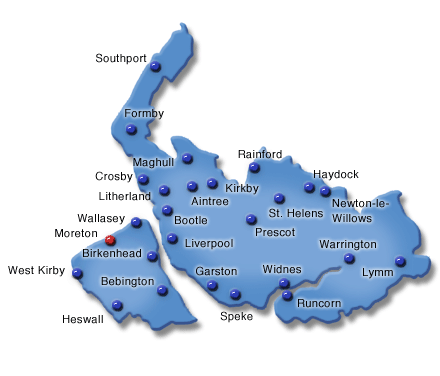Nursing Placements at Liverpool John Moores University
 The nursing programme consists of 50% theory and 50% practice. For students undertaking the BSc Nursing programme over three years you are required to evidence 2300 hours of learning on placement. For those undertaking the MSc Nursing programme you will provide evidence of prior experiential learning and undertake 1530 hours on the 2 year programme. For Trainee Nursing Associates from September 2024 you will evidence 2300 number of hours. Your placements will be within the Cheshire and Merseyside region and Liverpool John Moores University aims to allocate all students to a placement no more than 1.5 hours travel (via public transport) with no more than 2 changes of public transport. If you live outside of the region, you will still be placed within Cheshire and Merseyside and therefore your travel time may be considerably longer.
The nursing programme consists of 50% theory and 50% practice. For students undertaking the BSc Nursing programme over three years you are required to evidence 2300 hours of learning on placement. For those undertaking the MSc Nursing programme you will provide evidence of prior experiential learning and undertake 1530 hours on the 2 year programme. For Trainee Nursing Associates from September 2024 you will evidence 2300 number of hours. Your placements will be within the Cheshire and Merseyside region and Liverpool John Moores University aims to allocate all students to a placement no more than 1.5 hours travel (via public transport) with no more than 2 changes of public transport. If you live outside of the region, you will still be placed within Cheshire and Merseyside and therefore your travel time may be considerably longer.
The University works with many practice partners across the region in order to allocate student nurses and trainee nursing associates to a wide variety of placement learning experiences. Cumulatively, your placement experiences will equip you to work as a registered nurse or nursing associate (depending on your NMC registration), and include hospital based placements, community nursing teams, primary care setting, for example with Practice nurses or within one of the many private or voluntary sector organisations that Liverpool John Moores University works with.
Areas of practice included in your placements
Adult Nursing – Oncology, long term conditions, emergency care, care of the elderly, frailty, palliative care, surgical and medical wards, theatres and investigation and diagnostic areas, community nursing, nursing home sector, simulated placement, social care sector, for example those associated with supporting wellbeing in the community
Child Nursing - Long term conditions, emergency care, palliative care, surgical and medical wards, theatres and investigation and diagnostic areas, simulated placement, speciality placements (for example neonatal and oncology units), community nursing and social care sector (for example those associated with supporting wellbeing in the community)
Mental Health Nursing – Acute psychiatric admissions, Psychiatric intensive care, secure environments (low, medium and high), simulated placement, community psychiatric care, addictions units and social care sector (for example those associated with supporting wellbeing in the community)
Trainee Nursing Associates – students undertaking this programme will experience placements across a variety of fields of nursing and also across sectors
How you are supervised
Nursing and nursing associate students must be supervised by a person on a professional register (not necessarily a nurse or NA). The level of supervision will depend on your own progress and the part of the programme you are in. If there is no registered professional within the organisation then the University will provide one for you.
How you are assessed
Pre-registration nursing students must be assessed by a registered nurse and a nursing associate student by either a nurse associate or registered nurse. If there is no registered nurse within the organisation then the University will provide one for you.
How your placements are allocated
The University has a Practice Learning Support Unit that allocates all your placements. Your term time post code is used to assess the travel distance. Should you change your address you must update the university to ensure fair allocation of placements
Changing a placement
Under exceptional circumstances only, for example we would avoid placing you in an area where a close relative works.
Hours you will work
Nursing students can accumulate 40 hours per week on placement, this includes any break periods that occur on the shift. Nursing is a 7 day per week profession and provides care 24 hours per day, therefore students will experience a full range of shifts throughout the programme by adhering to the shift pattern of your allocated placements.
Getting to your placements
Liverpool and the surrounding region has a good public transport network or you can choose to drive to placement where you incur parking charges. On commencement of the programme we will notify you of how to utilise the reimbursement system for travel and parking.
Illness or an emergency
If you are unable to attend placement then you notify the Practice Learning Support Unit and the placement area that you have been allocated to. You should also notify the above mentioned areas when you are ready to resume.
Making up hours if you are absent
Due to the requirement to achieve a specific number of hours of practice based learning you will need to make up missed hours on the placements you are allocated to.

